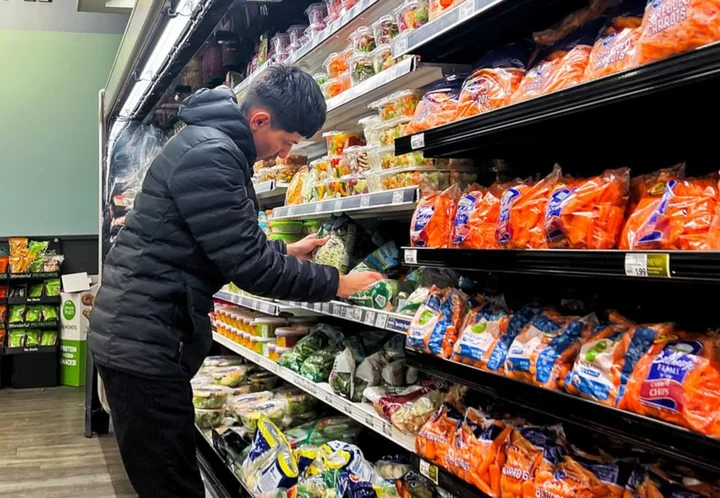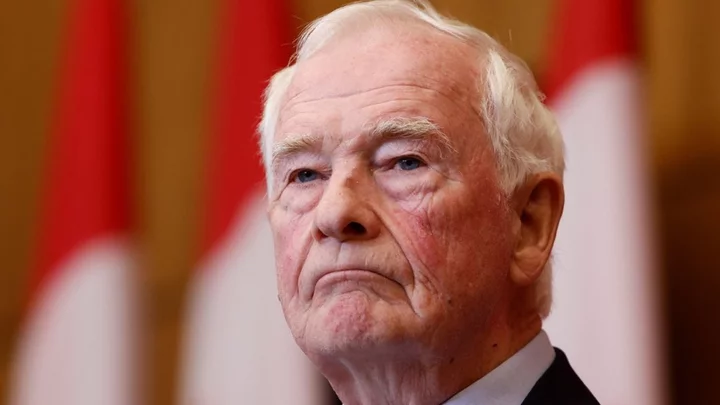WASHINGTON U.S. consumer prices increased moderately in July amid lower costs for goods, including used motor vehicles, a trend that could persuade the Federal Reserve to leave interest rates unchanged next month.
The CPI rose 0.2% last month, matching the gain in June, the Labor Department said on Thursday. Though the increase in the annual CPI rate picked up for the first time in 13 months, that was because it was calculated from a lower base after prices subsided last July following a jump that had boosted inflation to a pace not seen in more than 40 years.
The CPI advanced 3.2% in the 12 months through July. That followed a 3.0% rise in June, which was the smallest year-on-year gain since March 2021.
Annual consumer prices have come down from a peak of 9.1% in June 2022. The Fed has a 2% inflation target.
Economists polled by Reuters had forecast the CPI would rise 0.2% last month and by 3.3% on a year-on-year basis.
"Overall, the trend in inflation is more firmly on a downward path than at the start of the year," said Sam Bullard, a senior economist at Wells Fargo in Charlotte, North Carolina. "While headline inflation has made quick work of getting back to low single digits, the year-over-year pace is likely to get stuck around 3% through the end of the year. This would keep a sustained return to the Fed's target in the distance."
The CPI report on Thursday is one of two before the U.S. central bank's Sept. 19-20 policy meeting. Financial markets overwhelmingly expect the Fed to leave its policy rate unchanged at that meeting, according to CME Group's FedWatch tool. Since March 2022, the Fed has raised its benchmark overnight interest rate by 525 basis points to the current 5.25%-5.50% range.
UNDERLYING INFLATION COOLING
Excluding the volatile food and energy categories, the CPI gained 0.2% in July, matching the rise in June. In the 12 months through July, the core CPI increased 4.7% after rising 4.8% in June.
Core inflation was curbed by a second straight monthly drop in prices of used cars and trucks. Though rental costs continued to climb last month, the pace has slowed from January, with a further moderation expected in the second half of this year through 2024.
Independent measures show rental costs to be on a downward trend as more apartment buildings come on the market. Rent measures in the CPI tend to lag the independent gauges by several months.
Also pointing to a disinflationary trend becoming entrenched, a National Federation of Independent Business survey this week showed the share of small businesses citing inflation as their single most important problem dropped in July to the lowest level since November 2021. The proportion of businesses raising prices was the smallest in 2-1/2 years.
A cooling labor market should also help to restrain inflation. The government reported last week that the economy added 187,000 jobs in July, the second-smallest count since December 2020. Nevertheless, labor market conditions remain tight, with the unemployment rate at more than 50-year lows, keeping wage gains elevated.
But with worker productivity rising, economists are optimistic that labor costs would be contained.
A separate report from the Labor Department on Thursday showed initial claims for state unemployment benefits increased 21,000 to a seasonally adjusted 248,000 for the week ended Aug. 5. Economists had forecast 230,000 claims for the latest week.
The number of people receiving benefits after an initial week of aid, a proxy for hiring, fell 8,000 to 1.684 million during the week ending July 29, the claims report showed.
These so-called continuing claims are low by historical standards, indicating that some laid-off workers are experiencing short spells of unemployment.
(Reporting by Lucia Mutikani; Editing by Paul Simao)









